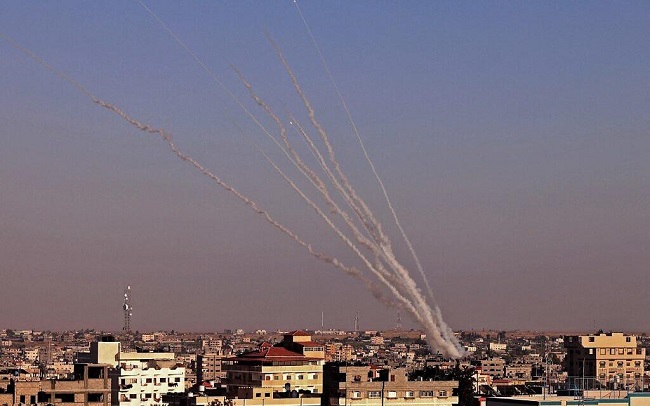We saw how rapidly the Israeli-Palestinian issue can be inflamed by posts made on social media after the terrible rocket firing and civil disturbances in Israel earlier this year. With 53% of American adults now getting their news from social media, instead of reputable news outlets, many people in the United States will learn about the Israeli-Palestinian conflict on sites like Facebook, Instagram, and Twitter.

Lies On Social Media Inflame Israeli-Palestinian Conflict
The rapidity with which millions have expressed their views on the dispute online has led to a rush of potentially hazardous misinformation on both sides of the debate. Recognizing and rejecting false narratives on social media around the Israeli-Palestinian conflict that try to promote violence can help in the battle for peace.
Zionist settlers are rejoicing in the aftermath of the attack on the Al Aqsa Mosque compound, which has been set on fire. This report went viral on Twitter at the height of the battle, accompanied by a video showing plumes of smoke rising above the Al Aqsa Mosque in the Old City of Jerusalem, which received over 2.3 million views.
The tweet, “Israeli Jews singing and chanting as a fire burns outside al Aqsa mosque,” was followed by a video with an astounding 15 million views. This is a horrible, repulsive thing to do.
Read these tweets and you’ll get a disturbing image of the violence perpetrated against Palestinian Muslims. Though it’s not the violence itself that makes these tweets alarming, but rather the fact that it never truly occurred.
False information about the Israeli-Palestinian conflict has been widely disseminated via social media platforms including Twitter, Facebook, and WhatsApp. Palestinian rioters would soon be invading communities in Tel Aviv, according to one post that quickly spread across WhatsApp groups. However, analysts at The New York Times debunked these claims, and no such violence was found in any of the locations named.
In addition to the problem of misleading information, the proliferation of social media posts often masks the problem of what isn’t being shared. Ignoring facts that would provide a more complete picture is just as harmful as spreading misleading information.
Last Words
The amygdala, a cluster of cells located close to the brain stem, is known to activate emotional responses in response to perceived threats, as shown in the book “The Power of Bad.” When danger is detected, this causes the brain to focus on avoiding it while disregarding any other stimuli (Tierney & Baumeister, 2021, 73).
Since our brains are hardwired to react negatively to threats, we are more inclined to focus on violent posts than positive ones. This contributes to a skewed understanding of the Israeli-Palestinian issue by silencing the many voices offering sensible solutions. Thanks for reading our article Lies On Social Media Inflame Israeli-Palestinian Conflict.

















